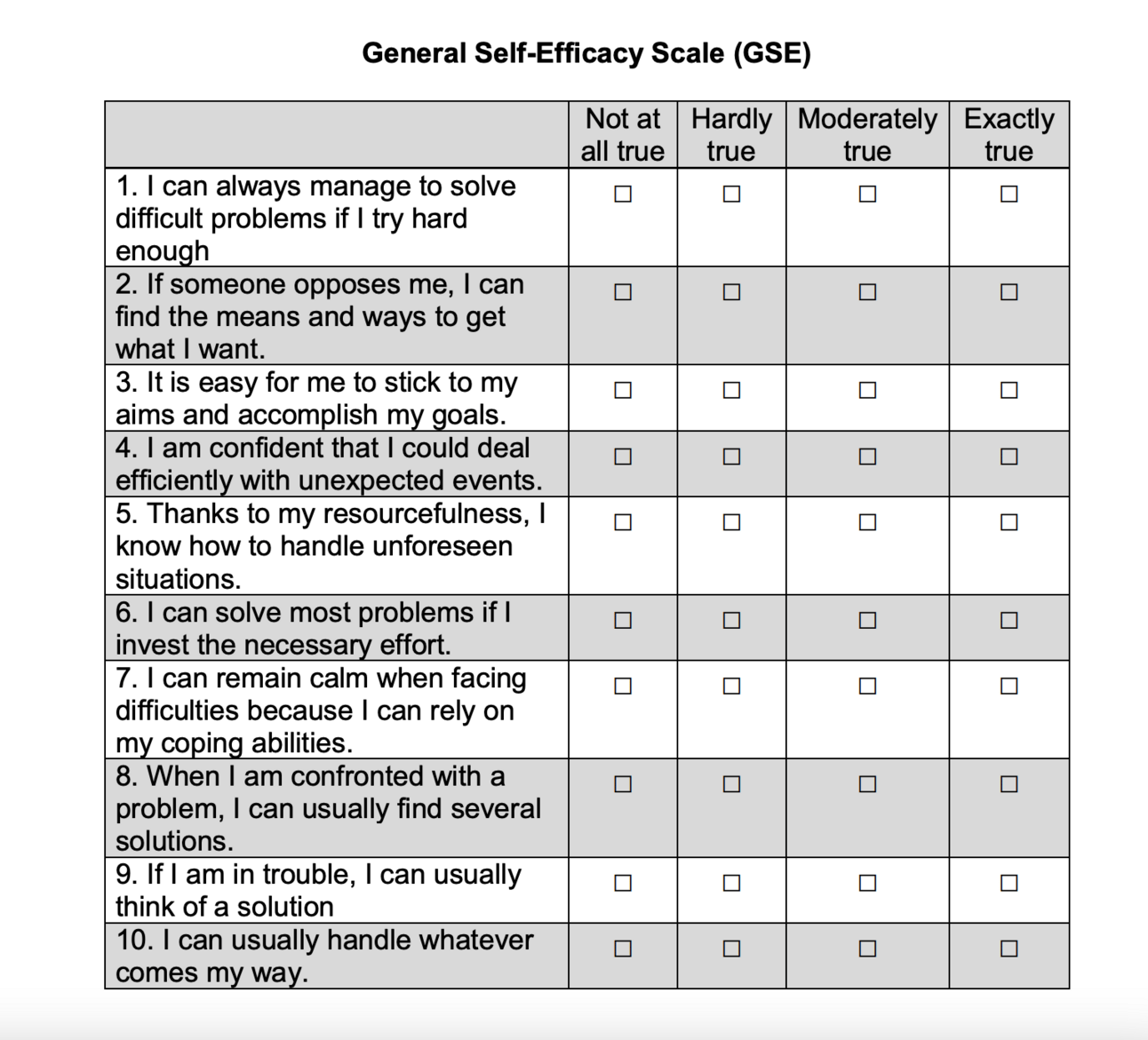I recently wrote a piece on Imposter Phenomenon (IP).
In it, I claim the problem of impostorism shouldn’t fall on the individual but on the systems themselves, whose baked-in inequity gives rise to the phenomenon.
I believe this, and hope you believe it, also.
Yet, it remains true that many people struggle with feelings of fraudulence. It’s crucial for everyone to understand the lived experience of this universal phenomenon.
My predilection for scouring vintage psychology texts and outdated psychometrics (yes, I realize this is an uncommon hobby; my ways are atypical) offers me insight into such experiences, and so I thought I’d share some of the scales used to measure Imposter Phenomenon and Perfectionism.
These scales are not for self-diagnosis or to suggest that IP is a clinical psychiatric disorder (it’s not). Instead, understanding that our distress is universal, can help us feel less alone and more connected.
These scales are for self-educational purposes, not diagnostic.
If you decide to use these measures, please remember to interpret the results only within the context of that specific scale. Don't try to apply the information to your life beyond this narrow context.
THE SCALES….
Clance IP
Harvey Imposter Scale (HIPS; Harvey, 1981)
(When scoring, count each dash as a number from 1 to 7. the first dash next to NOT AT ALL TRUE is 1 and the dash next to VERY TRUE is 7)

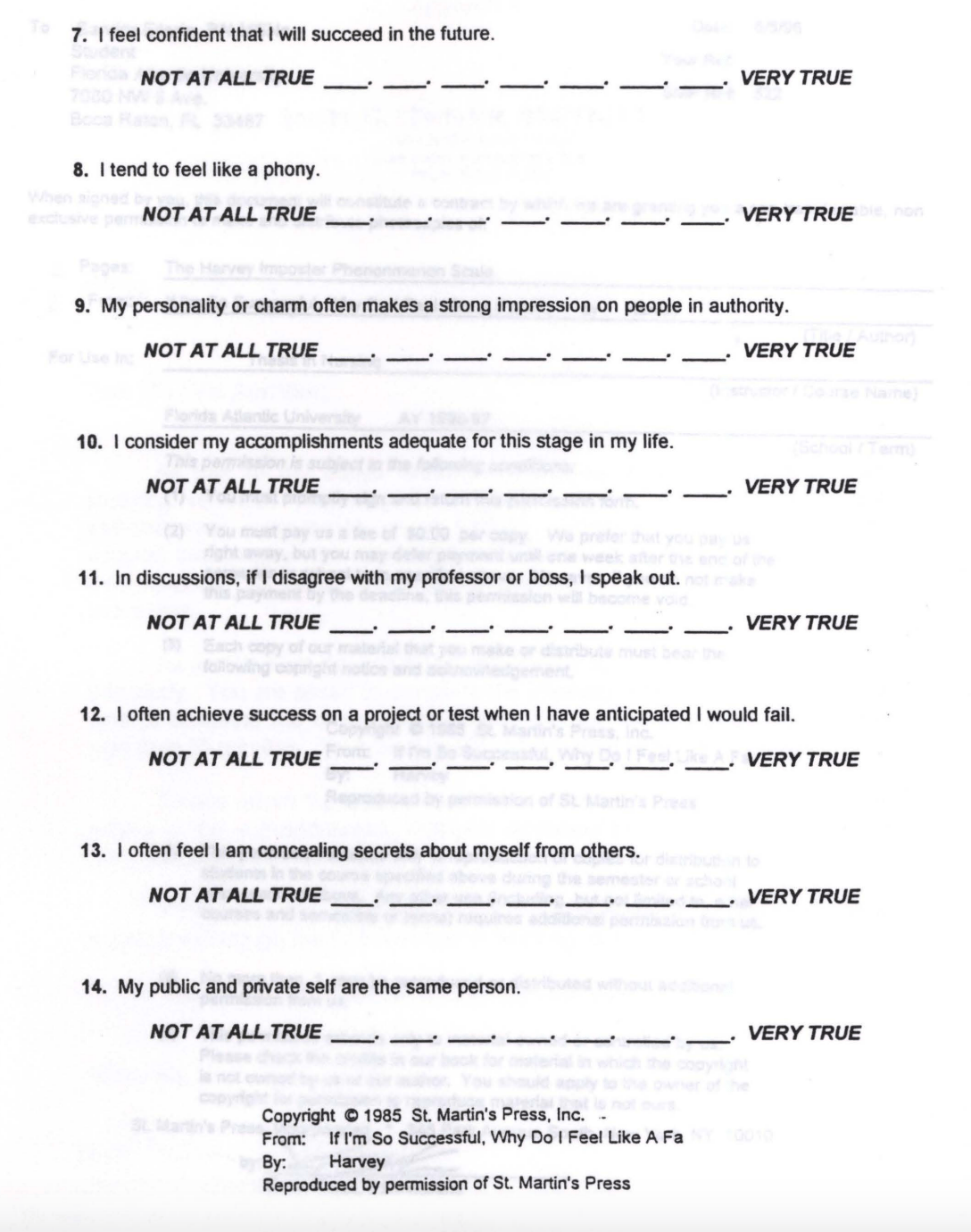
SCORING: Moderate IP experiences (between 41 and 60); • Frequent Impostor feelings (between 61 and 80) • Often and Intense IP experiences (80 or higher).
The Imposter Phenomenon: An Internal Barrier To Empowerment and Achievement
by Pauline Rose Clance Maureen Ann O'Toole

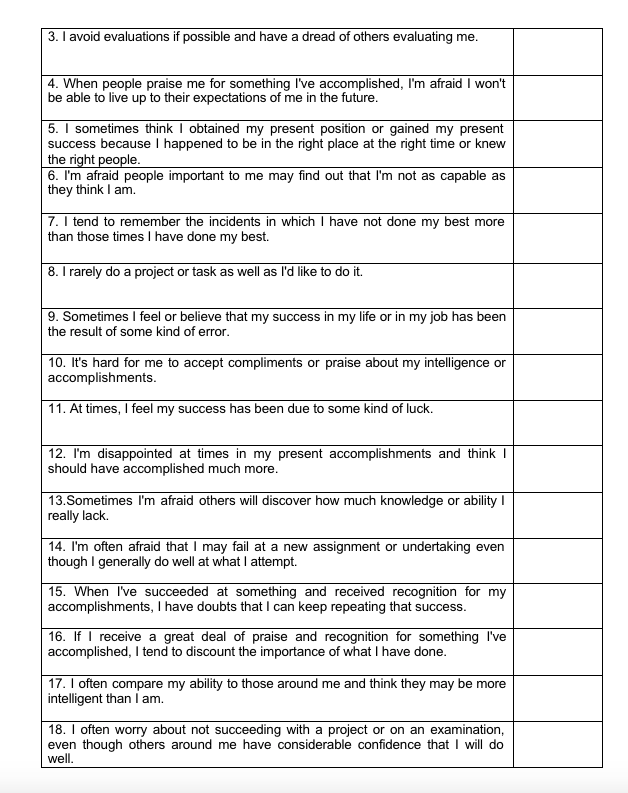
Perfectionistic Self-Presentation Scale

Performance Failure Appraisal Inventory
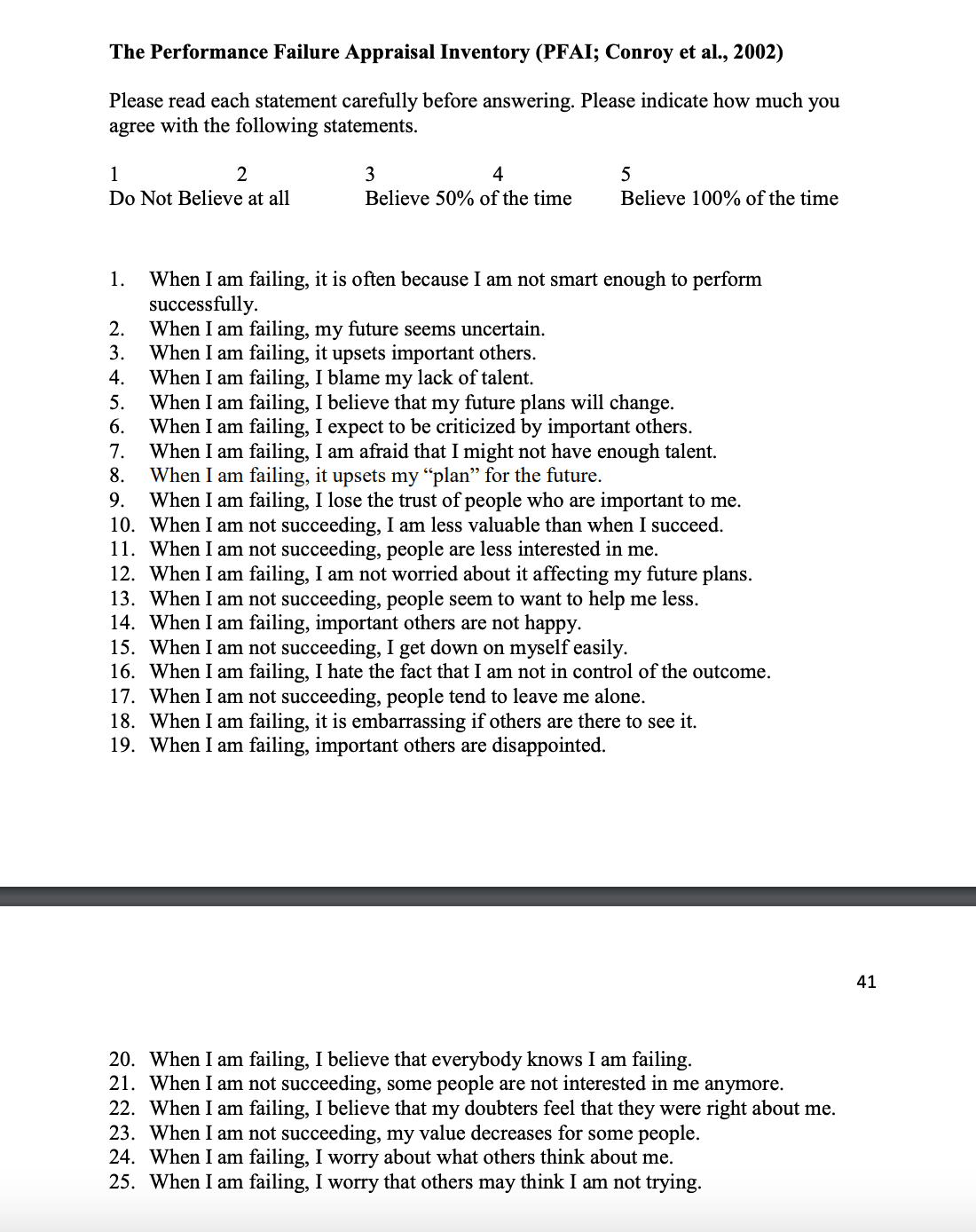
Perfectionism Cognition Inventory

Brief Fear of Negative Evaluation
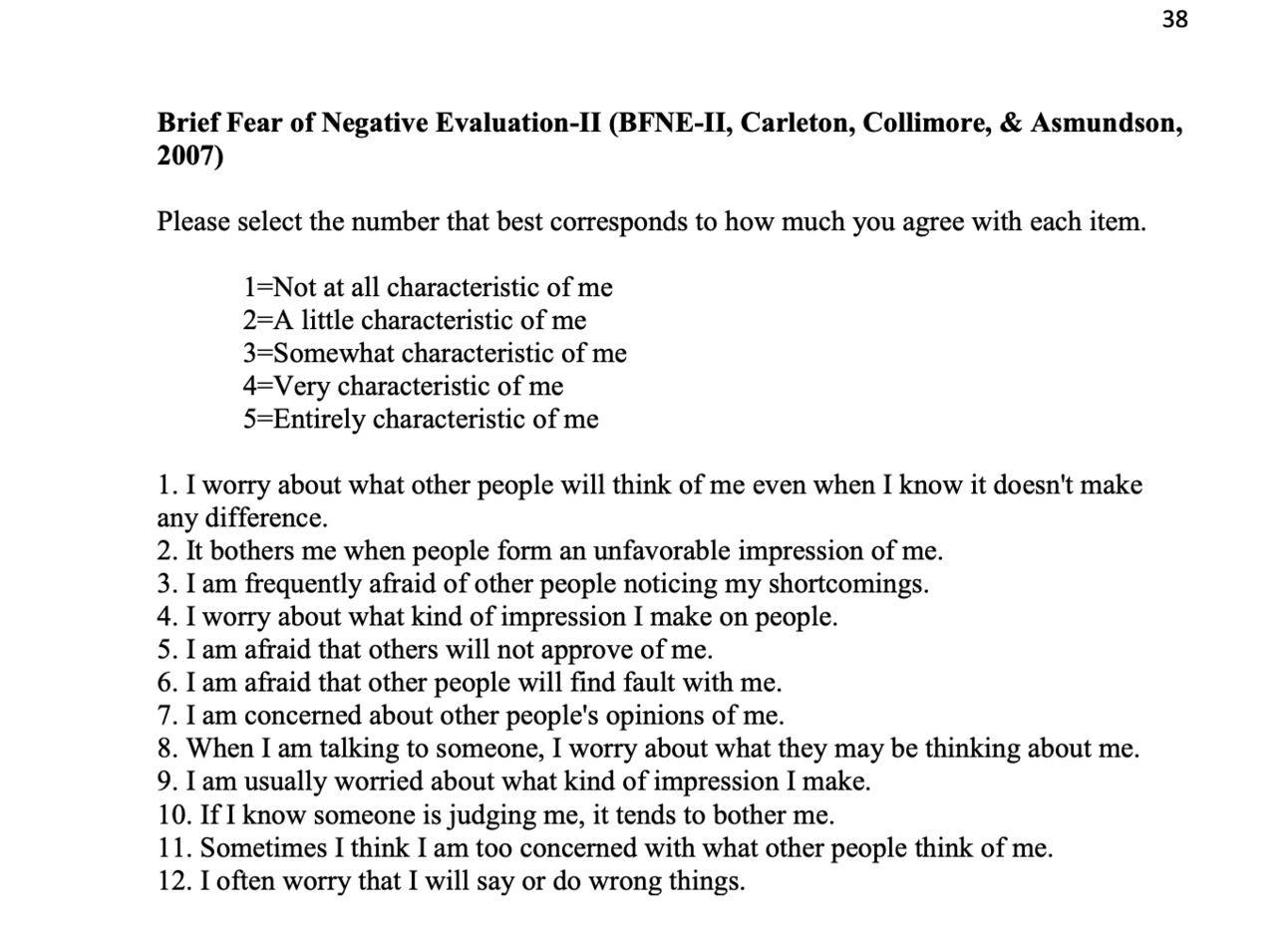
General Self-Efficacy Scale
